#surah for love back
Explore tagged Tumblr posts
Text
Surah For Love Back
Love is the most important feeling in this entire world. When two people are in love this is the best feeling they can ever feel. A person can do anything to get his true love. He does not want to lose his lover in any case. But sometimes people lose their love and this is a panic situation for them. If you cannot live without your lover then under such a situation the wazifa for getting lost…

View On WordPress
#How can Surah Dua make someone love you back#Powerful Dua To Get Love Back From Quran#Surah Dua To Get Love Back From Quran#Surah For Love Back#Surah for Someone to Come Back to You#Surah Ikhlas Wazifa To Get Love Back
0 notes
Text

#may Allaah make us from them#surah Al-Nahl#this ramadan I feel I am truly falling back in love with the Qur’an#May Allaah make us from it’s people
6 notes
·
View notes
Note
I’m muslim but I’m upset with the free Palestine movement especially as a woman. they are only making it worse for Muslim women subject to governments which are misusing the teachings of the Quran. they do not care even about Uyghur or Rohingya Muslims
I'm a day late, but I hope it's still okay to wish you Jumaat Mubaraka, lovely Nonnie! *hugs*
I feel you. A few years ago, I took a course and ended up becoming friends with the lady who happened to choose the seat next to me. She's a Muslim Israeli Arab woman. She had the audacity of divorcing her husband. She has a son who came out as gay, and she had the audacity to accept him as he is. Under Hamas or the Palestinian Authority's rule, she could be severely punished socially for either. Worse, her son would likely be terrified for his life, and might have ended up like one of my gay Palestinian friends, who have been forced into heterosexual marriages because the threat to their lives was so great. Instead, her son lives in Tel Aviv, is openly gay, and is an advocate for both the State of Israel and gay Israeli Arabs and Palestinians. She's an advocate for the State of Israel and Israeli Arab Muslim women. She gets to speak and be heard because she's an Israeli citizen. And it's not by chance that she is one. Her family made a choice in 1948, to stand by the Jews, rather than join the Arab attack on them. She once opened the Quran, showed me a specific surah, and told me, "This is why I know that as a Muslim, I must love the Jews, and stand by their state."
She has her own agency in choosing her position on the State of Israel, she has her well being, her son's, and that of many other Israeli Muslim Arab women and gay people to consider, and the anti-Israel crowd doesn't care about any of that. She's just an obstacle standing in the way of the narrative they've chosen, she shows reality is more complex than the black and white framing they embraced, which allows them to openly hate Jews while inflating their own egos, as if they're being righteous.
Not to mention coming up with ridiculous stuff like, "Palestinian men beat their wives because of the Israeli occupation!" This is honestly one of the dumbest things I've ever heard, only topped by "Israel is using cow/dolphin spies." But think of the practical implication. It means as long as Israel exists, no one's gonna hold Palestinian men accountable for the violence they're committing against their own wives. It's a betrayal of Palestinian women, all supposedly in the name of helping Palestinian nationalism.
youtube
(on top of the criticism voiced by UN Watch, it's insane how one of the speakers blaming domestic violence against Palestinian women on Israel is the UN representative of "Etat de Palestine," state of Palestine... What an easy way to avoid a state's duty to protect the women living under its rule from any and all violence, including domestic! If you're an independent state, and deserve recognition from the world, then you also have the responsibility to tackle domestic violence. If you're not independent, then why are you demanding to be recognized as such?)
And yes, the lack of care for actual Israeli Arabs and Palestinians is what I often talk about, but you're right that the damage caused by the anti-Israel crowd is bigger than just to Jews, Israeli Arabs, and Palestinians. Holding up an Islamist cause, backing up the Islamist movement and showing them how the west can be easily won, this will only serve to harm more people. Including Muslims who are more vulnerable to human rights abuses, like women and gay people.
In the vid above, as another example, the UN Watch speaker asks the UN to compare the data on domestic violence suffered by Palestinian women, to that suffered by Jordanian, Lebanese, Egyptian women and so on... Maybe if they couldn't use Israel as their punching bag, they'd have to look at domestic violence against women in the whole region, and actually do something about it. But nah, it's easier to write off Israel as the guilty party when it comes to Palestinian domestic violence, and pretend like that's the only place in the entire Middle East where this violence stands out as an issue. And that's before we talk about observing the levels of anti-women violence in non-Arab Muslim countries, such as Iran, where the government itself has imprisoned and even killed women for not wearing a hijab correctly. This is a betrayal of Muslim women at large.
And in addition to all that, like you said, this crowd also doesn't give a shit about the Muslims being persecuted in any conflict that doesn't allow the blame to be laid on the 'evil Jews.' Even when the numbers targeted are much greater, and the scope of abuse far more severe.
Thank you for the ask, and I hope you're okay! I hope the world cares more about Muslim women, rather than posturing as if it does, but only when it can be used against Jews. xoxox
(for all of my updates and ask replies regarding Israel, click here)
#israel#antisemitism#israeli#israel news#israel under attack#israel under fire#terrorism#anti terrorism#hamas#antisemitic#antisemites#jews#jew#judaism#jumblr#frumblr#jewish#israelunderattack#ask#anon ask
190 notes
·
View notes
Text
The gheerah of Allah
Allah is not pleased with that the one who knew him, and tasted the sweetness of being close to him, and the peacefulness of being connected to him leaves to the love of someone else, or neglects him, so when his servant does such act, he makes his life depressed, and covers him with a dress of weakness and humiliation and helplessness to punish him, or perhaps bring him back.
And from his gheerah, he made immoralities forbidden in public and private, and made the punishment of those who commit them severe in dunyah and akhirah, for he can see his servants at all times, and he hates to see them in sin.
And from His gheerah is that when the first man, Adam عليه السلام , desired to live in Jannah forever instead of obeying his lord, he made him and his offspring exit it until the judgement day.
And from his gheerah, when he noticed that Ismail عليه السلام took a part of the heart of his father ibraheem عليه السلام which Allah used to fill before Ismail was born, he ordered him to kill him, as a test and reminder to Ibraheem عليه السلام.
Beware from Allah, for when he sees that the heart of his servant is filled with the love of someone else, he seals it, and makes returning to his worship hard, and loving him all again almost impossible, and one cannot then blame anyone but himself for choosing someone over his lord.
So when you see your heart darken, and your life worsen, ask yourself, who's the first one you think about when you wake up, and who's the last one you think of before your soul returns to it's creator every night, then you'll know the cause, and returning to your lord will be then the solution.
Woe to those who sold the connection to paradise for a fake temporary enjoyment in Dunyah which leads to an everlasting punishment!
-Qamar -inspired by Ibn Al Qayyim's commentary on the ayah 28 of surah Aal Imraan.
"And Allah warns you about Himself."
313 notes
·
View notes
Text
Anyways, listen, I have been studying the tafseer surat An Nur for a while, Alhamdullillah, and today I was studying a few ayat, until I reached ayah 29 and then I paused to take a break (neurodivergent brain), and I had been watching something earlier, and I had paused it to study the surah, so pausing the surah at the end of ayah 29, picking up the thing I was watching and clicking play, there is a scene in the masjid and the imam started talking about Surat An Nur verse 30, which is exactly where I was at. I love these unexpected little signs that make me feel the most alive, they make me feel the tangibility of my direct connection with Allah swt, they make me feel that Allah swt sees me, is patient with me, is always waiting for me, is always looking out for me, is always calling me. Ya Allah, may YOU always preserve and protect this connection and may YOU allow me to forever keep it and never lose it. Allahuma guide us and keep us steadfast on your straight path, and even if we lose track for a little bit, always call us back and bring us back to you, Ameen. 🤍🍃
25 notes
·
View notes
Text
𝐃𝐞𝐯𝐞𝐥𝐨𝐩𝐢𝐧𝐠 𝐆𝐨𝐨𝐝 𝐇𝐚𝐛𝐢𝐭𝐬
˚ ༘♡ ⋆。˚ 𝑯𝒐𝒘 𝒕𝒐 𝒈𝒊𝒗𝒆 𝒖𝒑 𝒃𝒂𝒅 𝒉𝒂𝒃𝒊𝒕𝒔 ˚ ༘♡ ⋆。˚



First off, giving up an old bad habit is difficult, that I know; however, it is not impossible. I've had a lot of difficulties in my life where I repeated the same habit over and over again and I thought for me I would never overcome them. But you know what changed? trying. I tried my best every day and even if I failed, I slowly accepted that I am not perfect and I am only human. That is who we are, and that is why Allah the Almighty is so merciful, because Allah subhanahu wa ta'ala himself knows we humans will slip up and fall. But listen, it's not impossible and as annoying as it is, as long as you keep trying, keep having that good intentions of becoming better and to do better; trust me those habits will be history.
Whenever we do something for the sake of our lord, everything works out, everything clicks together. These habits you have won't be vanished for one day of course, or a week, it's a process--a journey that we all need to accept. Think of it as a fitness journey, you won't get fit in one day. These things take time and after feeling so negative about myself I realized as long as you try, asking Allah for help, and doing the most you can--it is possible.
I hope these tips do help you, and everyone is different as everyone has different struggles and bad habits. These will either help you or guide you to overcome those habits in your own way. May Allah subhanahu wa ta'ala make it easy for us.
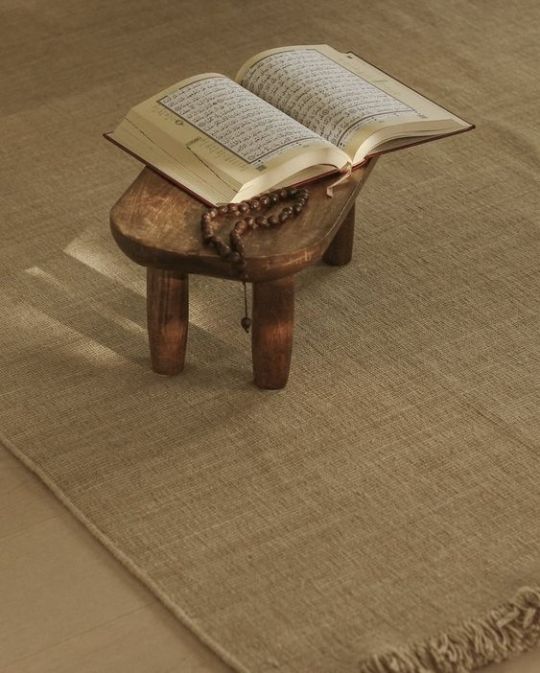
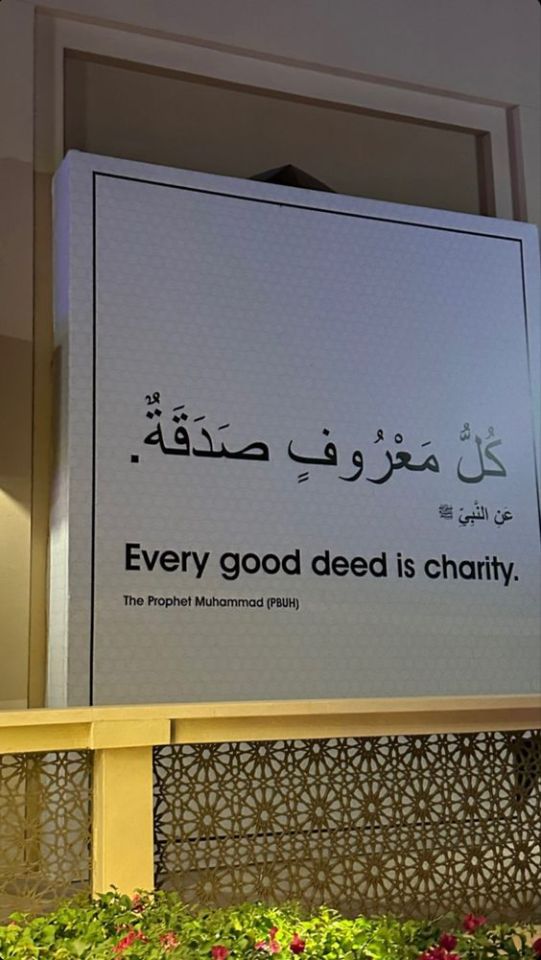
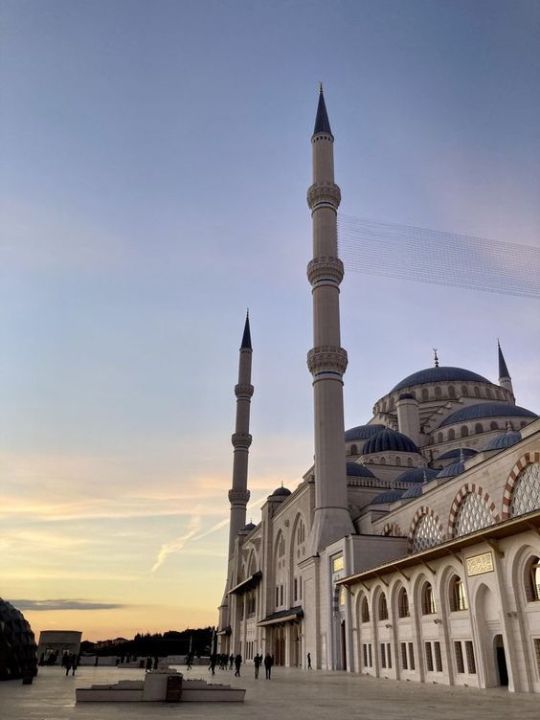
⤑ 𝑰𝒎𝒑𝒓𝒐𝒗𝒆 𝑻𝒉𝒆 𝑸𝒖𝒂𝒍𝒊𝒕𝒚 𝑶𝒇 𝒀𝒐𝒖𝒓 𝑵𝒂𝒎𝒂𝒛
I have seen a video of someone asking a scholar why do I still commit these bad deeds/habits if I am performing my five daily prayers? and the answer to this was the quality of your namaz. Do you rush into prayer, are you zoning out, are you not on time for namaz, and etc.
There is of course a lot to this but the quality of your namaz and how much time you spend with our lord does affect our hearts.
One of many ways to re-connect with our lord to become better with our daily prayers are:
Performing your prayers on time (I understand how our laziness could get in the way or how we are so into whatever we were doing before and cannot detach ourselves from this but, a quote I read and did help me at times like this was "Put your time and effort to Allah, and Allah will put his time and effort to you too.")
Recite a dua/surah after your namaz (Ayetel kursi, a repentance dua, La ilaha illallah, wahdahu la sharika lahu, lahul-mulku wa lahul hamdu, yuhyi wa yumitu, wa huwa ala kulli shay'in qadir, and etc.)
Perform your wudhu 15-10 minutes earlier (Let me tell you when I did this it was so effective. When you perform wudhu earlier, you are in a clear-minded state and are purified. Along with you being on time for namaz, this additionally helps you become more focused during namaz)
Perform Dhikr (Subhanallah, Alhamdullilah, Astaghfirullah, La illaha illallah, Allahu Akbar)
Learn the meaning of what you are reciting (When you learn and understand the meaning of the surah/dua's you are reciting, being focused becomes easier and the connection becomes stronger)



⤑ 𝑫𝒊𝒔𝒕𝒓𝒂𝒄𝒕𝒊𝒐𝒏𝒔
Create distractions for yourself to not commit those deeds/habits!
Do what you love and enjoy (Go back to those hobbies you used to enjoy! or hang out with your friends and family.)
Educate yourself (Look up interesting things; Learn something new; Watch an islamic podcast)
Get to work (If you have any outstanding work or homework, get straight to it.)
Learn a new surah (Let's say you REALLY have nothing else to do, then what better way to spend that time in something worthy--learning a surah!)
Go outside and enjoy nature!



⤑ 𝑩𝒖𝒊𝒍𝒅𝒊𝒏𝒈 𝑮𝒐𝒐𝒅 𝑯𝒂𝒃𝒊𝒕𝒔
Along with giving up those bad habits, create new good habits to incorporate in your day-to-day life!
Each day, add something in your routine--even if its small! For instance, get back to that skin care routine you were so lazy to do; or go on that walk you kept saying later to; or even folding your clothes and organizing your closet. Each time you add a good habit to do, you become distracted to those bad habits, have less time do commit them, and on the long run you are creating habits for a better difference!
With this in mind, please do not do everything at once. To prevent a negative on-going cycle, just like that book "Atomic Habits" said, that "If you can get 1% better each day for one year, you'll end up with 37 times better by the time you're done."
A habit to always include and progress even more is repentance! Recite and repeat Astaghfirullah; Ya Gaffar and Ya Gafoor; as well as the repentance surah's! Before doing anything, always say Bismillah and whether you're doing chores or scrolling on your phone, always say Astaghfirullah. This helps you be more aware of Allah subhanahu wa ta'ala!
And lastly, remember you can do it!
: ̗̀➛ Allahumma musarrifal-qulubi, sarrif qulubana 'ala ta'atika
O Allah! Controller of the hearts, direct our hearts to Your obedience.

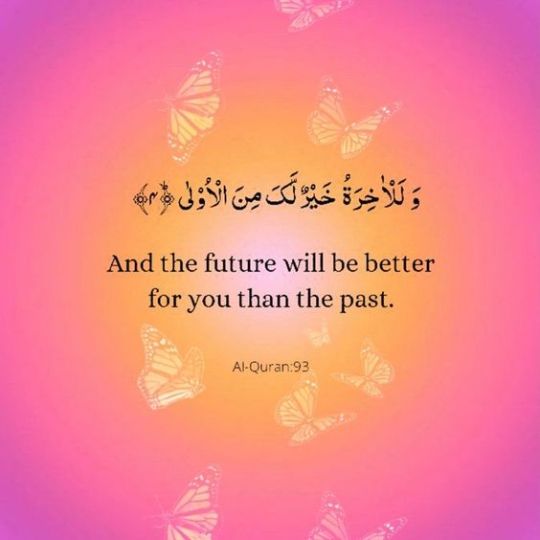
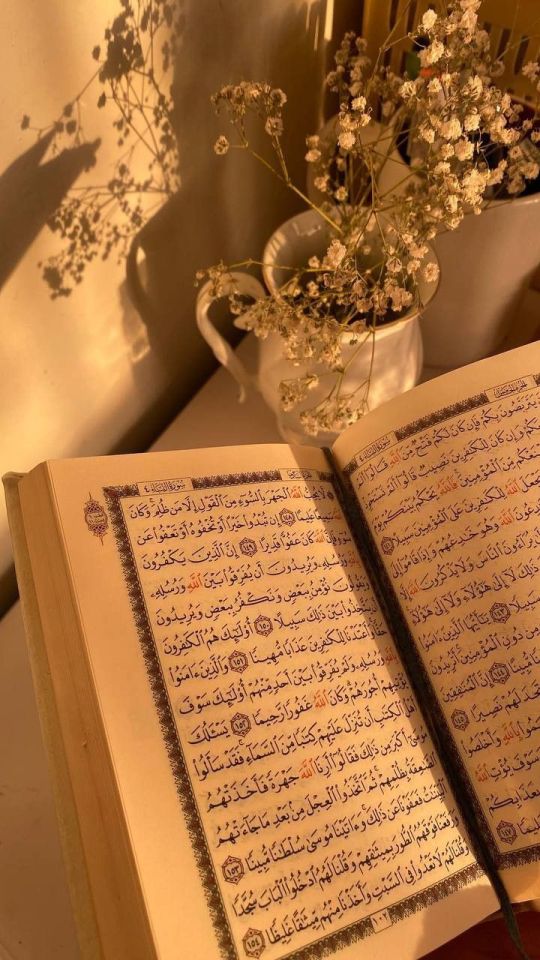
#aesthetic#affirmations#becoming her#becoming that girl#deenislam#deenoverdunya#girl blogger#glow up#health and wellness#healthylifestyle#islampost#islamdaily#islamicquotes#islamic#islam#positive affirmations#positive thoughts#positive quotes#positivity#this is a girlblog#holy quran#quran#muslimah#positive mental attitude#muslim#that girl#it girl#wellness#healing journey#health & fitness
39 notes
·
View notes
Text

Allah calls Himself Al-Ghaalib— The Victor, the Predominant— on one occasion in the Quran. Al-Ghaalib is the One who is victorious in every situation. He is the only One who decides and does as He wants with the creation and makes the believers prevail.
The Victor, the Predominant, the One Who Prevails
Ghaalib comes from the root ghayn-laam-baa, which points to two main meanings. The first meaning is to be victorious and to prevail. The second main meaning is to be predominant and overcome.
This root appears 31 times in the Quran in five derived forms. Examples of these forms are yaghliboo (“the will overcome”), ghaaliboona (“victorious”), and maghloobun (“one overpowered”).
Linguistically ghaalib refers to the one possessing the attribute of victory and dominance, whereas ghalaba refers to the verb “to overcome.” From the same root comes the word ghulb in the Quran, Allah says: wa hadaa’iqa ghulba– and gardens of dense shrubbery [Quran, 80:30], which points to a thick foliage of plants to be found in the earth and “overcoming” the soil it is growing in. Al-Ghaalib is the ultimate one to prevail, control, dominate, and overcome each being and situation with great ease and utmost wisdom— and whenever He pleases.
Al-Ghaalib Himself says: And the one from Egypt who bought him said to his wife, “Make his residence comfortable. Perhaps he will benefit us, or we will adopt him as a son.” And thus, We established Joseph in the land that We might teach him the interpretation of events. And Allah is predominant over His affair, but most of the people do not know. [Quran, 12:21]
“Against all odds”
Allah ‘azza wa jall calls Himself Al-Ghaalib in Surah Yuusuf. In the story of the prophet Yuusuf ‘alayhi sallam everything is intended one way and it goes the other way, a beautiful example of how everything is in the control of Al-Ghaalib.
Yuusuf’s brothers want to get him out of the way so they can get the love of their father. They left him to die in the well, but he survived. Allah says in this surah: Wallahu ghaalibun ‘alaa amrih (And Allah is predominant over His affairs). What He wills will happen, even though everything indicates another way.
Then Al-Azeez, the wealthy ruler, buys Yuusuf and brings him into His palace, and Al-Azeez’s wife, a powerful, beautiful woman, does everything she can to seduce this young, single man who is her slave. Every single aspect is tempting for zinaa– immorality– but Yuusuf doesn’t sway.
He ends up descending from a palace into the darkest prison and from the prison back to a ruling position in Egypt where he is reunited with his beloved father, Yaqoob ‘alayhi sallam. All the events of this story are a clear sign that the final decision is to Al-Ghaalib, “against all odds.” And every human being is like Yuusuf ‘alayhi sallam in that in his affairs Allah is Al-Ghaalib!
How Can You Live By This Name?
1. Have strong belief. Never fear people and their decisions, never be deceived by the looks of a situation nor be scared of losing your possessions – know that Allah is Al-Ghaalib in Your affairs and He will decide what happens. Next time you feel tempted to care more about the acceptance of people or gaining belongings than trying to please Al-Ghaalib, remind yourself and live by this ayah: If Allah should aid you, no one can overcome (ghaaliba) you; but if He should forsake you, who is there that can aid you after Him? And upon Allah let the believers rely [Quran, 3:160]
2. Hold onto the truth. Allah has written, I will surely overcome (la’aghlibanna), I and My messengers. Indeed, Allah is Powerful and Exalted in Might [Quran, 58:21] Know that if you stick to the truth and to your Islamic principals you will win; no matter how weak the believers might get, the truth will prevail. This is because Allah is Al-Ghaalib; the victory of those who follow Him and the messengers is His promise and when Allah promises, He delivers. Allah says: But those who were certain that they would meet Allah said, How many a small company has overcome (ghalabat) a large company by permission of Allah. And Allah is with the patient [Quran, 2:249] So hold on to the truth, no mater how weak it seems, have strong belief Allah is Al-Ghaalib, have patience and victory will be yours, whether in this life or the next! And whoever is an ally of Allah and His Messenger and those who have believed – indeed, the party of Allah they will be the predominant (al-ghaaliboona). [Quran, 5:56]
3. Take lessons from the past. And Pharaoh and his people were overcome (faghuliboo) right there and became debased. [Quran, 7:119] While you read the ayaat in the Quran of the former people and their fates, Allah observes if and how you apply these lessons in your daily life. Do you try to avoid the sins they committed? Look at the characteristics of the people who were defeated because of their transgression, disbelief and arrogance and strive to be better than them in shaa Allah.
4. Don’t let sins overcome you.In the Hereafter there will be a heart-shaking scene: the people of the Hellfire will beg Allah to release them from the Fire. They will say, “Our Lord, our wretchedness overcame (ghalabat) us, and we were a people astray. [Quran, 23:106] However He (Allah) will say: Remain you in it with ignominy! And speak you not to Me!” Verily, there was a party of My servants who used to say: “Our Lord! We believe, so forgive us and have mercy on us, for You are the Best of all who show mercy! But you took them for a laughing stock, so much so that they made you forget My remembrance while you used to laugh at them!) Verily, I have rewarded them this Day for their patience; they are indeed the ones that are successful. [Quran 23: 108-111] Let this scene inspire you to not be overcome by sins in this life and end up like the people begging Allah for one more chance. Instead believe in this life and continuously ask Al-Ghaalib for forgiveness and mercy, as you will not get a second chance to return to this world!
5. Don’t think you can prevail by yourself.Never attribute any victory or success to yourself, nor dominate others in an unjust way. And [remember] when Satan made their deeds pleasing to them and said, No one can overcome (ghaaliba) you today from among the people, and indeed, I am your protector. [Quran, 8:48] Some people think they can prevail by themselves or they attach their mind or trust to another human being or even object, but eventually they will be defeated.
6. Don’t be deceived. But, [on the contrary], We have provided good things for these [disbelievers] and their fathers until life was prolonged for them. Then do they not see that We set upon the land, reducing it from its borders? So it is they who will overcome? [Quran, 21:44] Sometimes the wealth, success, beauty and even intelligence of those who disbelieve can be confusing and even tempting. Know that Al-Ghaalib only prolongs the lives of some people for them to increase in their transgression. Say to those who disbelieve, You will be overcome and gathered together to Hell, and wretched is the resting place. [Quran, 3:12]
7. Call upon Al-Ghaalib. When all people turn against Him after years of calling to Allah, what does Nuh ‘alayhi sallam do? He doesn’t ask others for help, he doesn’t give up, but he turns to Al-Ghaalib and beautifully supplicates:
فَدَعَا رَبَّهُ أَنِّي مَغْلُوبٌ فَانتَصِرْ So he invoked his Lord, “Indeed, I am overpowered, so help. [Quran, 54:10] Whenever you feel overpowered, call upon Al-Ghaalib with this Quranic dua’!
Wallahu ta’alaa ‘alem. O Allah, Al-Ghaalib, we know that You are the One who is predominant in all affairs. Make us of those who have strong belief, hold onto the truth at all times and learn from the lessons You provided us in Your book. Don’t let us be overcome by sin, and make us of those who are victorious in both this life and the Hereafter, ameen!
#allah#god#islam#muslim#quran#asma al husna#revert#convert#convert islam#revert islam#reverthelp#revert help#revert help team#help#islamhelp#converthelp#how to convert to islam#convert to islam#welcome to islam
11 notes
·
View notes
Note
Okay HAI I'm back! And I have some theories. For Salauddin the painting thing i read the ask someone else sent and you expanding on it, and I think he wouldn't spent a long time just looking at you because if I am right, we almost always were wearing our niqaab around him (except the times it was out of our control). So I think he would look at your face at first then never look again out of sheer respect for you (and maybe that also made him feel that you were alive again in weird sense. idk how to explain it)
Also I will gladly say this again again and again. You are amazing, your will to write is amazing and you imagination is amazing. Allahuma Barik.
Also some theories for the characters
Idk why mehmed (i think thats his name) gives me salauddin-after-he-fell-for-his-sheikha vibes. very chill, very calm and understanding. I would marry him if I was given the choice.
I feel like Mustafa would be (if we were to marry him) the angry type because we have already gotten on bad footing and first impressions but considering that he was there during the Surah al kawther scene he would be impressed and maybe truly believe we were the there for admiring the potrait (no he wouldnt he isnt that dumb). But he would suck it up and marry us for the sake of being on his father's good side. (shown by him going to war and winning he most probably keeps doing these things s he can be crowned sultan without any problems. Also he gives Salauddin-before-he-fell-in-love vibes. Calculating and the questioning the reader
Also i am so happy I was learning about the ottoman empire in history class because this made it so much more fun reading.
Thank you for writing this so quickly, now I have something to think about before i sleep
Ahhhhh im so happy u enjoyed it<33333 i am honestly not that stoked about the ottomans atm, but i do have an OC in mind that is like... ✨🌌💫🌠💋 I WANNA EAT HIM UP HE'S SOO UGHHHHH- look he'd be probably be as close to the faceless man in my dreams <3333
i enjoyed reading ur theories, and you'll have to read part 9 to see if youre wright
30 notes
·
View notes
Note
What are the laws of war, which have been framed by Holy Quran?
There are some certain bases of war that are peremptory; prior, during, and after. Islam is composed of serious body of rules. Every right confers upon its holder. In this regard, unbelievers, too, have some rights.
a. Bases prior to war
1. The principle that the treaties are binding
If an Islamic country had made a treaty with a non-Muslim country, it has to fulfill the agreement. With Quranic expression, fulfill the covenant: the covenant is surely subject to questioning (on the Day of Judgment you will be held accountable for your covenant). (Al-Isra Surah, 17:34)
In the verse that let Muslims declare a war on polytheists, it is stated as, Excepting those among the people who associate partners with God with whom you made a treaty, and who have not thereafter failed to fulfill their obligations towards you (required by the treaty), nor have backed anyone against you. Observe, then, your treaty with them until the end of the term (that you agreed with them). Surely God loves the God-revering, pious (who keep their duties to Him). (At-Taubah Surah, 9:4) How could there be a covenant with those who associate partners with God (and recognize no laws and treaty) on the part of God and His Messenger? – excepting those with whom you made a treaty in the vicinity of the Sacred Mosque: (as for the latter) so long as they remain true to you, be true to them. Surely God loves the God-revering, pious (who keep their duties to Him). (At-Taubah Surah, 9:7)
In accordance with the divine instructions, Muslims always abide the agreements; never transgress a treaty or an agreement. We believe in the benefit to convey the incident that had taken place in the Asr-i Saadah (Age of Happiness and Tranquility in which Prophet Muhammad lived). It has been on the authority of Huzayfa bin Al-Yaman who said, Nothing prevented me from being present at! The Battle of Badr except this incident. I came out with my father Husail (to participate in the Battle), but we were caught by the disbelievers of Quraish. They said: (Do) you intend to go to Muhammad? We said: We do not intend to go to him, but we wish to go (back) to Medina. Therefore, they took from us a covenant in the name of God that we would turn back to Medina and would not fight on the side of Muhammad (peace be upon him). So, we came to the Messenger of God (peace be upon him) and related the incident to him. He said: Both, of you proceed (to Medina); we will fulfill the covenant made with them and seek God's help against them.
Unbelievers have never seen any harm in not abiding the covenant. The Holy Quran explains the matter as, How (could there be a covenant with the others) when, if they were to prevail against you, they would observe towards you neither any bond, nor law, nor agreement, they seek to please you with their mouths but in their hearts they are averse; and most of them are transgressors (who habitually disregard all bounds of equity). (At-Taubah Surah, 9:8) That is to say, even if they win, they transgress a covenant. For instance, they say, No body will ever hurt, but never hesitate to massacre at the end. In fact, we see many examples of their wrongdoings throughout the history. Meccans to transgress the Hudaibia treaty,
Divine Decree about the ones who make a practice of transgressing covenants is as follows: Those of them with whom you have made a treaty, and who break their treaty on every occasion without fearing God. If you meet them in war, deal with them in such a manner as to deter those behind them (who follow them and those who will come after them), so that they may reflect and be mindful. (Al-Anfal Surah, 8:56, 57) Prophet Muhammad executed the decree of the Bani Qurayza Jews in accordance with the above given verse.
This following verse is also about transgressors, But if they break their pledges after their treaty (with you) and assail your religion, then fight with those leaders of unbelief – surely they have no trustworthy pledges – so that they may desist (from aggression). (At-Taubah Surah, 9:12) The expression mentioned at the end of the verse, so that they may desist (from aggression) depicts that the intent of the war is not massacring, but to dissuade transgressors from their cruelty and injustice.
Besides, there would be a risk of transgression of the counterparty. In such a case, thing to do is given in the following verse, If you have strong reason to fear treachery from a people (with whom you have a treaty), return it to them (i.e. publicly declare to them, before embarking on any action against them, that you have dissolved the treaty) so that both parties should be informed of its termination. Surely God does not love the treacherous. (Al-Anfal Surah, 8:58) As it is clearly understood from the verse, if the transgression of the counterparty is not obvious, but if there is a possibility of any treachery, they should be informed that the covenant is abrogated. It is not religiously permissible to attack all of a sudden. Informing about the abrogation of the covenant would be a nobly behavior. Otherwise, counterparty would set up a howl.
2. Invite to accept Islam
Prophet Muhammads appointment of the commander in chiefs of expeditions and his advise to them on etiquettes of war and three courses of action that they should invite polytheists:
It has been reported from Suleiman b. Buraid through his father that when the Messenger of Allah (may peace be upon him) appointed anyone as leader of an army or detachment he would especially exhort him to fear Allah and to be good to the Muslims who were with him. He would say: Fight in the name of Allah and in the way of Allah. Fight against those who disbelieve in Allah. Make a holy war, do not embezzle the spoils; do not break your pledge; and do not mutilate (the dead) bodies; do not kill the children. When you meet your enemies who are polytheists, invite them to three courses of action. If they respond to any one of these, you also accept it and withhold yourself from doing them any harm. 1. Invite them to (accept) Islam; if they respond to you, accept it from them and desist from fighting against them. Then invite them to migrate from their lands to the land of Muhajirs and inform them that, if they do so, they shall have all the privileges and obligations of the Muhajirs. If they refuse to migrate, tell them that they will have the status of Bedouin Muslims and will be subjected to the Commands of Allah like other Muslims, but they will not get any share from the spoils of war or Fai' except when they actually fight with the Muslims (against the disbelievers). 2. If they refuse to accept Islam, demand from them the Jizya. If they agree to pay, accept it from them and hold off your hands. 3. If they refuse to pay the tax, seek Allah's help and fight them. When you lay siege to a fort and the besieged appeal to you for protection in the name of Allah and His Prophet, do not accord to them the guarantee of Allah and His Prophet, but accord to them your own guarantee and the guarantee of your companions for it is a lesser sin that the security given by you or your companions be disregarded than that the security granted in the name of Allah and His Prophet be violated When you besiege a fort and the besieged want you to let them out in accordance with Allah's Command, do not let them come out in accordance with His Command, but do so at your (own) command, for you do not know whether or not you will be able to carry out Allah's behest with regard to them. (Sahih Muslim, Book 019, Number 4294) As it is seen, war proposed as a final solution. These three courses of action should not be applied under every circumstance. Hudaibia Treaty is a fine example to that.
b. During War
War is chaos. It is a place for killing and dying. Anyone can lose his continence. Common sense is left destitute, feelings loom large. The following verse teaches us how to react in those kinds of situations.
Fight in Gods cause (in order to exalt His Name) against those who fight against you, but do not exceed the bounds (set by God), for surely God loves not those who exceed the bounds. (Al-Baqarah Surah, 2:190) Fight against those who fight against you gives the message of not fighting against elders, children, women, and clerics. However, if women are fighting against you, it can be fight against them.
Do not exceed the bounds expression, on the other hand, forbids such exorbitances as cutting noses or ears.
One other situation in a war is the situation of the people who crave for mercy, O you who believe! When you go forth (to war) in Gods cause, investigate with care until the situation becomes fully clear to you, and do not say to anyone who offers you (the greeting of) peace (thereby indicating his being a Muslim), "You are not a believer," seeking the fleeting gains of the present, worldly life; for with God are gains abundant. Even thus (as he now is) were you before (ignorant of faith and what being a Muslim is, and you too entered Islam with a similar word); but God has since then been gracious to you. So investigate with care until the situation becomes fully clear to you. Surely God is fully aware of all that you do. (An-Nisa Surah, 4:94)
#allah#quran#revert#islam#muslim#help#reverthelp#prayer#god#muslimah#revert to islam#convert to islam#reverthelpteam#revert help team#hijab#dua#salah#religion#new muslim#how to convert to islam#welcome to islam
10 notes
·
View notes
Text
Most Effective Rohani Amal For Love
Love is one of the most beautiful feelings on earth. Once you fall in love, everything becomes so exciting and exciting. You feel like one of the luckiest people on earth since the person does everything for you. Everyone tries to feel special, and love is the only way that can make you do so. No other feeling in the world can seem so happy than love. But not everyone is lucky enough to get true…

View On WordPress
#Most Effective Rohani Amal For Love#What name of Allah to recite for love#Which dua is powerful for love between husband and wife#Which surah is good for a partner#Ya Jamiu 10 times Wazifa For Love Back
0 notes
Text
I came across the video where a man said I left Islam because Allah curses Abu Lahab in Surah Masad. He being weird and senseless further said Allah is saying as if He is scared of Abu Lahab.
The Qur'an was revealed to the Messenger of Allah (صَلَّى اللّٰهُ عَلَيْهِ وَسَلَّمَ) and Allah used to communicate with Muhammad (صَلَّى اللّٰهُ عَلَيْهِ وَسَلَّمَ) through the Qur'an. During the early days of Prophet's ﷺ mission to spread tawhid and remind people to worship none but Allah. So allah revealed a verse ordering Muhammad ﷺ to invite his relatives to Islam ( Quran 26:214-216).The Prophet (ﷺ) then stood up and answered his Lord’s command. Ibn ʿAbbās (رضي الله عنه) reported that, when : ( “And warn your tribe (O Muhammad ﷺ) of near kindred” ) was revealed, the Prophet (ﷺ) ascended Mount As-Safā and began to call out, “O children of Faihr, O children of ʿAdee,” these being the various sub-tribes of the Quraish. They all gathered together before the Prophet (ﷺ), and if a man was not able to go himself, he sent a messenger on his behalf to find out what was happening. The Quraish, Abu Lahab included, came, and the Prophet (ﷺ) said, (“Suppose I informed you that horses (i.e., an army riding on horses) were in the valley (i.e., behind this mountain), intending to attack you - would you believe me?” “Yes,” they said, “We have experienced nothing from you but truthfulness.” “Then I am a warner to you,” said the Prophet (ﷺ). (The Prophet (ﷺ) then went on to say: “Verily! I’m a warner before the time of a severe punishment.”) “Woe to you for the rest of this day!” exclaimed Abu Lahab. “Is it only for this that you have gathered us together?” Then Allāh (ﷻ) revealed the following verses, making it clear who it was that was headed for destruction:
"Perish the two hands of Abu Lahab (an uncle of the Prophet ﷺ) and perish he! His wealth and his children (etc.) will not benefit him!” (Qurʾān 111:1,2)
In brief Allah is not scared of abu lahab. Allah revealed this verse to remind Muhammad (صَلَّى اللّٰهُ عَلَيْهِ وَسَلَّمَ) that abh lahab can do nothing to you. Allah is with you O Muhammad (صَلَّى اللّٰهُ عَلَيْهِ وَسَلَّمَ) and his hands will be perished. Also abu lahab was the worst enemy of Muhammad (صَلَّى اللّٰهُ عَلَيْهِ وَسَلَّمَ). He even made his sons to divorce the daughters of Muhammad (صَلَّى اللّٰهُ عَلَيْهِ وَسَلَّمَ) which caused immense sadness and pain to Muhammad (صَلَّى اللّٰهُ عَلَيْهِ وَسَلَّمَ). Later on Uthman ibn affan رضى الله عنه got married to them and thats is why Uthman is known as Dhul Noor-ayn (possessor of two lights). The wives were ( Ruqqaya and Umme Kulthum رضى الله عنهما). Abu lahab and his wife used to place thorns on his way to hurt him. They wanted to assassinate the Messenger of Allah (صَلَّى اللّٰهُ عَلَيْهِ وَسَلَّمَ). The first years of Prophethood were so hard and painful for Muhammad (صَلَّى اللّٰهُ عَلَيْهِ وَسَلَّمَ) but he held the rope of Allah and didn't stop with the likes of Khadija, Abu bakr, Ali,(may Allah be pleased with them all) with the Messenger of Allah (صَلَّى اللّٰهُ عَلَيْهِ وَسَلَّمَ). The power actually came when Hamzah رضى الله عنه accepted Islam although his acceptance wasn't due to the message of Allah to accept islam. Hamza رضى الله عنه accept islam out of love for Muhammad (صَلَّى اللّٰهُ عَلَيْهِ وَسَلَّمَ) when abu jahl hit the head of the Prophet ﷺ with stone. So out of pain and love for Muhammad ﷺ he went to abu jahl and hit him back and abu jahal knew about hamza رضى الله عنه and his bravery so he couldn't move an inch towards him. Furthermore Allah mentions Prophets and their enemies in the Qur'an so as said Allah mentioned abu lahab as the worst enemy of Muhammad (صَلَّى اللّٰهُ عَلَيْهِ وَسَلَّمَ) in the Qur'an.
#islamdaily#islam#islamic#quranquotes#quranandsunnah#islam help#islamicpost#islamislove#al quran#convert to islam
8 notes
·
View notes
Text
I love how the albanian word “më/mu fal” means to pray, to forgive, to gift all at once.
We pray for others, we forgive them, and we give. Such simple acts, holding a great weight on our scale. These three things that we do for others, we actually do for ourselves as well. When we pray for others, the angels make dua for us saying “Ameen, and for you the same.”, by forgiving others, we nurture our soul by not allowing hate, revenge and or grudge to reside in our hearts. And by giving, no matter in which form, it always comes back to us.
Allah tells us in the Quran in Surah Hud, Verse 114:
”إِنَّ الْ��َسَنَاتِ يُذْهِبْنَ السَّيِّئَاتِ ذَلِكَ ذِكْرَى لِلذَّاكِرِينَ“
“Surely good deeds wipe out evil deeds. That is a reminder for the mindful.”
47 notes
·
View notes
Text
نَحْنُ نَرْزُقُكُمْ
Verses like this نَحْنُ نَرْزُقُكُمْ is mentioned many times in the Quran. Showing us how Allah is the ultimate provider, alleviating our fears of poverty and needs.
In Surah Al-An'am (6:151), Allah tells us “We provide for you and for them.” This assures us that Allah cares for us and our loved ones, even in our upmost times of fear.
Surah Al-Hijr (15:20) Allah says: “And We made in it means of sustenance for you and others, who you do not provide for.” The world’s resources are gifts from Allah to support our lives.
Surah Al-Isra (17:31) comforts us with: “We provide for them and for you.” Here, Allah calms our worries about provision for our children.
In Surah Ta-Ha (20:132), Allah advises: “We ask you not for provision; We provide for you. and the [best] outcome is for [those of] righteousness” This teaches us to rely solely on Him for all our needs while focusing on worship and prayer to guide us to righteousness.
Surah Al-Ankabut (29:60) reflects: “How many are the creatures that cannot secure their provisions! ˹It is˺ Allah ˹Who˺ provides for them and you ˹as well˺. He is indeed the All-Hearing, All-Knowing” This reminds us that Allah sustains all creatures, great and small.
Surah Ar-Rum (30:40) states: “It is Allah Who created you, then bestowed upon you your sustenance, and He will cause you to die and then bring you back to life.” It highlights Allah’s care from creation through all stages of life.
In Surah Az-Zumar (39:52), we read: “Do they not know that Allah gives abundant or limited provisions to whoever He wills? Surely in this are signs for people who believe.” This tells us that Allah is in control of wealth according to His wisdom.
Surah Adh-Dhariyat (51:57) reassures: “I seek no provision from them, nor do I need them to feed Me.” Allah provides for everyone without needing anything from His creation. We need Allah. He does not need us.
Surah Al-Mulk (67:15) invites us: “He is the One Who smoothed out the earth for you, so move about in its regions and eat from His provisions. And to Him is the resurrection ˹of all˺.” It encourages exploring the earth and enjoying its fruits as a sign of His provision. His blessings.
These beautiful verses collectively remind us that Allah provides for all of our needs, guiding us to trust in His eternal care because, نَحْنُ نَرْزُقُكُمْ it is He who will provide for us…
11 notes
·
View notes
Text
Arabian sheaf headcanons because I can
-This was inspired by how @ylvisruinedmylife gave sheaf a different name that only her family can call her by so I decided to do the same) her real full name is Shahid Aziz ( yes I know I gave her a different last name but I can change it whichever I like okay?)but she only prefers that only her family and closest friends call her that so she mostly goes by sheaf
- I like to think that parts of religion have survived in the districts and in district 9 parts of Christianity survived in the trading section the wealther part of the district and in the golden oasis Islam survived in there sheaf wake up early to pray fajar then heads to work
- she and her family eat beans and scrambled eggs using flat bread and often eat with their hands
- despite not having mushaf copies anymore the Surahs of the Qur’an barely survived as they were documented in small papers and are taught to the children this practice is done in secret though because when panem was founded lots of religious books were burned by the government and peacekeepers , sheaf and her sister and cousin were taught the stories of the prophets and she considers them her heroes she loves their stories her favourites are Noah and Musa and Yusuf 's stories part of her wishes that one day the capitol would face the same punishment that noah and musa's people faced she knows it's not her place to judge but she knows that the capitol would be punished for all the atrocities they committed
- despite losing track of when Ramadan is supposed to happen the practice of fasting itself didn't die out annually the people of the golden oasis decide to not eat or drink until sunset they already are used to living with very little resources and starvation so that's nothing new to them sheaf moves through that month like it's nothing but she takes real pride in the fact that she is able to endure that test of resilience
- kisses her parents hand and places the back of their hand on her forehead as a way to show gratitude and respect
- absolutely loves date palms she was craving them while in the capitol and loves playing the riq and Ney and plays them during weddings and celebrations with her sister who plays the Daf
- teaches the stories of the prophets to the younger children in her district as well as the lessons that come from them like patience and resilience and kindness and holding onto your beliefs even in the face of cruelty
- she prayed while trapped in the zoo enclosure even if she got weird looks from the tributes and was mocked by the capitol it brought her comfort and a sense of hope and control
- says dua before and after eating
4 notes
·
View notes
Text
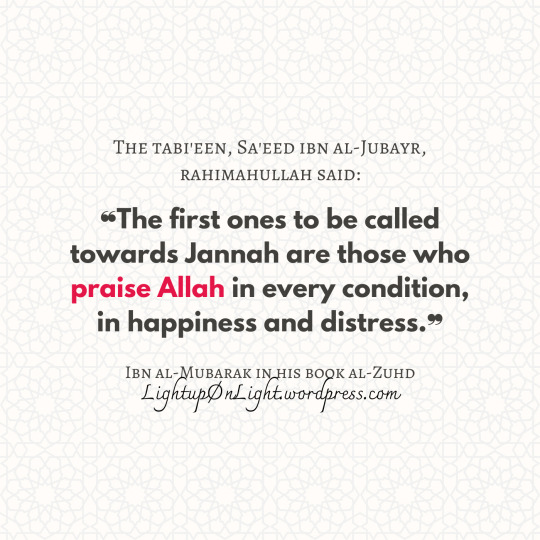
🌺 ❛So whatever you have been given is just [a passing] {mataa’ | enjoyment} for this worldly life…❜ 【Surah ash-Shura 42:36】
Allah ta’ala says that every single thing that we’ve been given — any physical objects (eg. clothes, properties) and life experiences (eg. youth, opportunities) — are all {mataa’}.
{Mataa’} means something that we utilise. Our cars, houses, clothes, titles, wealth — they are all mataa’. They’re just tools, resources, not our purpose in life.
Literally in the Arabic language, it also means reaching maturity, and ready to be used. So mataa’ is something that reaches its most maturity level, can be benefited from, and put to use.
So what it means is that all these dunya materials and life experiences that we go through, whether we perceive them as good or bad, are to mature us. They’re part of our growth.
That pang of regret when we look back at the mistakes we did in life is a gift from Allah, because it may be the catalyst to make us return to Him.
Those bitter losses we experienced pushed us to prolonged sujood in our salaah, where we rediscovered a meaningful relationship with our Rabb.
The betrayal we experienced by a trusted friend teaches us to love and appreciate more of those who remain loyal, sincere and true.
Those sad moments in life that we wish never happened were also blessings in disguise, for they taught us to learn humility, compassion, and to have empathy and mindfulness towards others. Because often we cannot understand someone else’s vulnerability, unless we’ve been vulnerable in the same way even if it’s to a lesser extent.
Past experiences can still hurt in the present. But through them is how we're able to learn core values, values that sometimes we won't fully grasp until we experience them ourselves. Moments of both adversity and good times are all parts of something greater, bi idhnillah.
And so we say, alhamdulillah alaa kulli hal. All thanks and praises belong to Allah, in all circumstances.
Your sister in Deen, Aida Msr ©
19 notes
·
View notes
Text

Allah calls Himself Al-Aakhir— The Last— once in the Quran. Al-Aakhir is the one who neither has an end nor beginning. There is nothing beyond Him; He is the Ultimate and will remain after the whole creation has passed away!
The Last One, The Ultimate
Aakhir comes from the root hamza-khaa-raa, which points to three main meanings. The first meaning is to be latter and to put back, the second is to postpone or to put at the end, and the third main meaning is to be final, last, and ultimate.
This root appears 250 times in the Quran in six derived forms. Examples of these forms are al-aakhirati (“the Hereafter”), yawmil-aakhiri (“Last Day”), yastakhiroonaa (“seek to delay, they remained behind”), ukhraa (“another”) and al-aakhareena (“the others”).
Al-Aakhir is the last without having a first. He is above any descriptions. Al-Aakhir is logically the first to give us guidance and the last to look after those whom He guides. He will remain the last One, with no one or nothing ever comparable to Him in essence or attributes!
Al-Aakhir Himself says: . . . He is the First and the Last, the Ascendant and the Intimate, and He is, of all things, Knowing. [Quran, 57:3]
What Will Remain?
In the beautiful ayaat of Surah Ar-Rahmaan (26 and 27) Allah ‘azza wajal says that all the residents of earth will perish and die. Even the residents of the heavens will die, except whomever Allah wills.
What will remain? Only the Honorable Face of Allah, because our Lord, the Exalted, the Blessed, is the Ever Living Who never dies. Ash-Sha`bi said, When you have recited, kullu man ‘alayhaa faa’n (Whatsoever is on it (the earth) will perish) do not stop, continue read: wa yabqaa wajhu rabbuka dhul jalaali wal ikraam (Only your Lord, possessed of majesty and honor, shall endure for ever). [Tafseer ibn Katheer]
How Can You Live By This Name?
1. Let your desire to meet Allah motivate you to perform good deeds.
The Messenger of Allah salallahu ‘alayhi wa sallamsaid: Whoever loves to meet Allah, Allah loves to meet him. Whoever is averse to meeting Allah, Allah is averse to meeting him [at-Tirmidhee] When you die you will be shown a glimpse of your destiny either in Paradise or in the Hellfire, this will bring about love or dislike of your meeting with Allah.
Every day think about your meeting with Allah and your standing in front of Him, and let this motivate you to do good deeds and strive against your desires so that you will be blessed with love of meeting Allah Al-Aakhir. Whoever puts Allah first will never be last!
2. Give continuous charity.
When you die you won’t be able to do any good deeds anymore and you will not receive any reward for actions anymore, except for three types of deeds. Their rewards will be lasting!
The Messenger of Allah salallahu ‘alayhi wa sallamsaid: When a man dies, his deeds come to an end except for three things: sadaqah Jariyah (ceaseless charity); knowledge which is beneficial; or a virtuous descendant who prays for him (the deceased).[Muslim]
So read about and give sadaqah jariyah (e.g. planting a tree, building a mosque, etc). Be part of spreading Islamic knowledge, like printing an Islamic book, printing your own leaflets to spread knowledge, etc.; no project is too small! And teach your children from an early age to make dua’ for you!
3. Remind yourself of the Last Day.
Don’t let a day go by without remembering the day you will be accounted for each of your deeds, no matter how insignificant you thought they were. Let remembrance of death and the day of account humble you.
When the Prophet went to bed, he would put his right hand under his right cheek and say: Allahumma qinee ‘adhaabaka yawma tab’athu ‘ibaadaka (My Lord, save me from Your punishment on the Day when You resurrect Your slaves, to be recited three times) [Abu Dawood] Memorize this supplication and write it on a note next to your bed, so you never forget to say it in shaa Allah!
4. Value silence and the rights of neighbours and guests.
In the Quran and Sunnah specific good deeds are narrated directly connected to your belief in Al-Aakhir and the Last Day. Strive to fulfill all of them in your daily life! The Prophet salallahu ‘alayhi wa sallam said: Whoever believes in Allah and the Last Day, let him say what is righteous or keep silent. Whoever believes in Allah and the Last Day, let him be kind to his neighbor. And whoever believes in Allah and the Last Day, let him be generous to his guest. [Muslim]
5. Ask Al-Aakhir for a good ending.
Some people commit an act of kufr at the very end of their lives. May Allah protect us from this and die upon disbelief! Some lives end in a horrible, disgraceful way, like young Muslims dying in car accidents while they were drunk and speeding and other examples of the angel of death seizing believers while they were engaged in a major sin. Ask Al-Aakhir for your last deed to be your best deed and your best day the day you meet Him. You can use this beautiful supplication— say it while deeply reflecting on your own life, deeds and death:
Allahumma innee as aluka husnal khaatimah – O Allah, I ask You for a good end to my life.
اللهم إني أسألك حس الخاتمة
Wallahu ta’alaa ‘alem.
O Allah, Al-Aakhir we know that You are the last One who will remain when everything perishes. Bless us with love and eagerness to meet You and make us remind ourselves that we will stand before You so we can strive to do good. Enable us to do deeds whose rewards will continue, counting for us after our death, and give us a good ending, ameen!
#allah#islam#revert help team#asma al husna#revert help#muslim#ayat#daily#allah’s name#dua#pray#prayer#salah#muslimah#hijab#religion#reminder#mohammed#new revert#new convert#new muslim#how to convert islam#converthelp#convert islam#become a muslim#welcome to islam#daily ayat#prophet#god#revert
7 notes
·
View notes